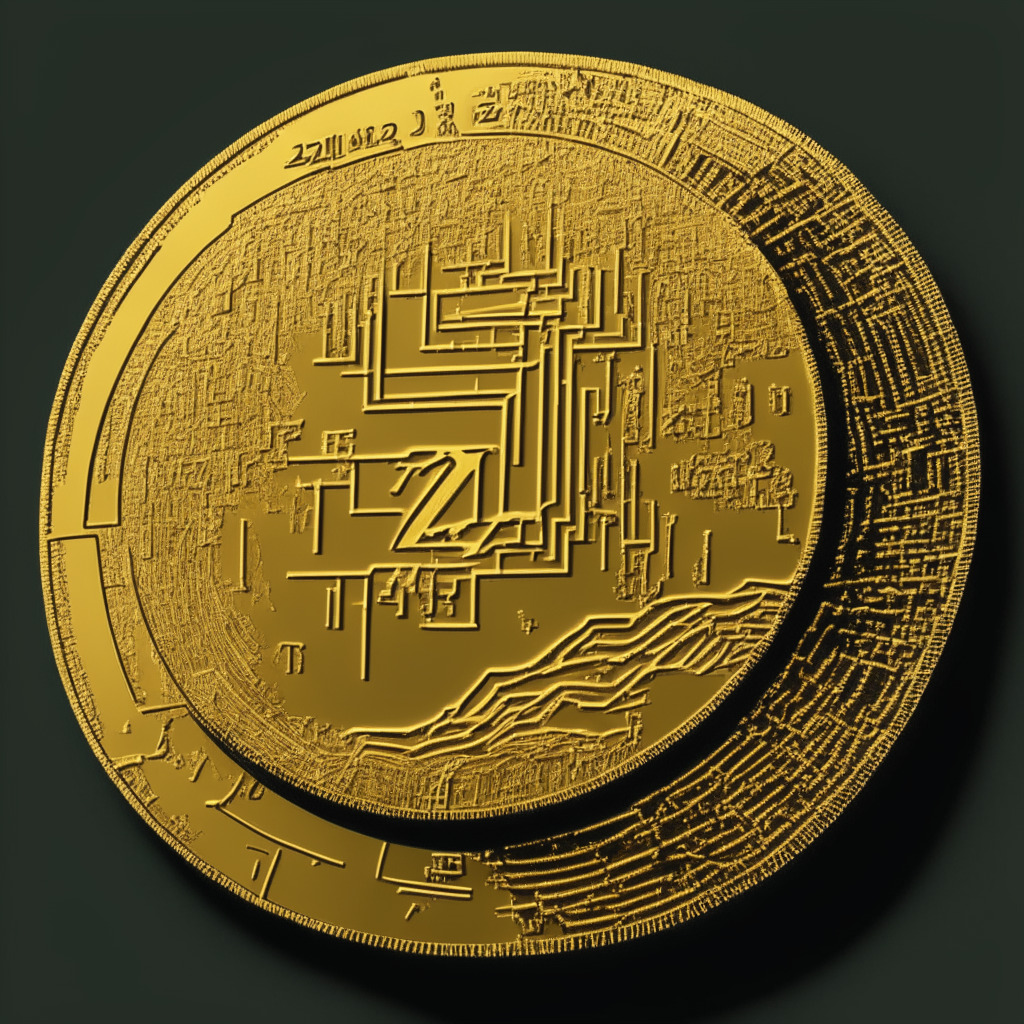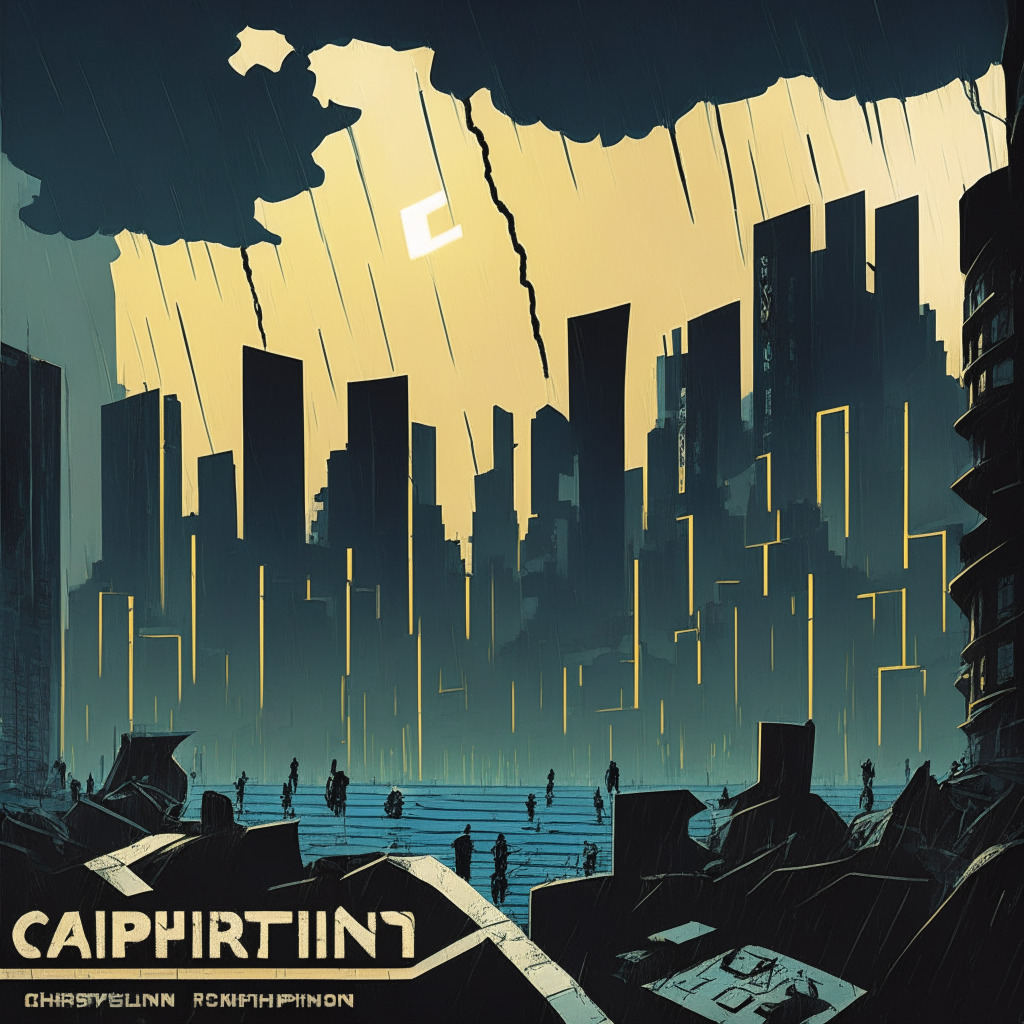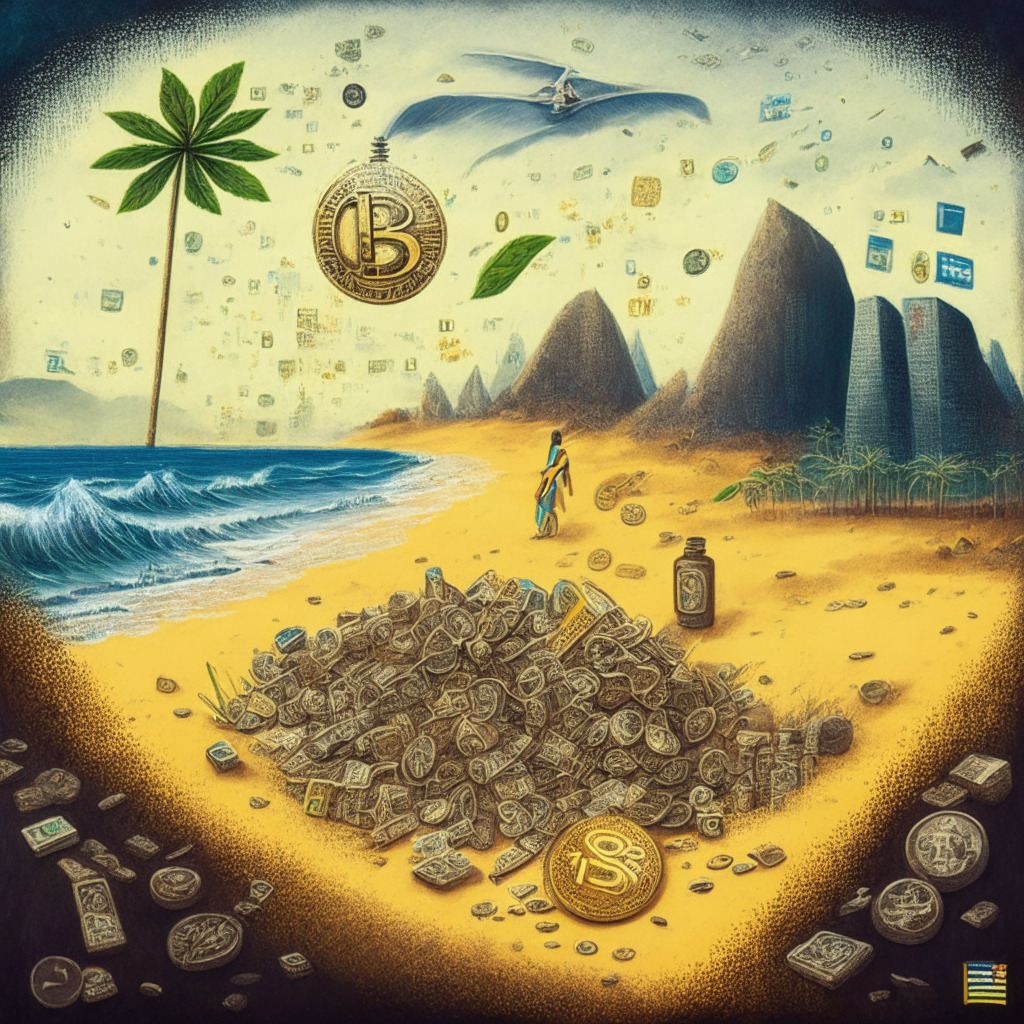“Choosing a consensus mechanism for a blockchain project is complex and multifaceted, involving the balancing of security, sustainability, scalability, regional preferences, and long-term project goals. The decision requires understanding and navigating through various project-specific details and an ever-evolving technology landscape.”
Search Results for: Intel
UK Watchdog Blocks Crypto Ads: A Blow for Binance’s Marketing Plans or a Step Towards Regulatory Compliance?
“The Financial Conduct Authority (FCA) has put restrictions on Rebuildingsociety, a peer-to-peer lending platform partnered with Binance, inhibiting it from issuing crypto ads due to non-compliance with new marketing regulations. This change creates uncertainties and affects the platform’s ability to facilitate Binance’s visibility in the UK market.”
Navigating the Cryptostorm: The Rise and Fall of Binance’s Billion-Dollar Recovery Initiative
“Binance’s ambitious Industry Recovery Initiative (IRI), a billion-dollar fund to rescue struggling cryptocurrency startups, has under-delivered. Only $15 million of the declared $1 billion has been deployed amidst regulatory pressures and lack of suitable investment opportunities. However, the initiative retains its significance in the volatile cryptocurrency ecosystem.”
Global Stocks Surge Amid Fed’s Dovisha Remarks: A Temporary Resurgence or a Market Turnaround?
“Renewed optimism over interest rate shifts resulted in a surge in Asian and European stocks, with Japan’s index leading the way. However, concerns over sustainability and the unpredictable dynamics of interest rates persist. Meanwhile, the crypto exchange Binance has frozen Hamas-linked accounts, highlighting potential issues with personal financial autonomy in blockchain technology.”
Binance’s Freeze on Hamas-linked Accounts: A Complex Crypto Dilemma
“Binance, a cryptocurrency exchange, has frozen accounts linked to Hamas at the request of Israeli law enforcement. This action highlights the potential role of crypto exchanges in enforcing international laws and curbing illegal activities, and raises questions about the balance between accessibility and security in blockchain tech and cryptocurrencies.”
Cyprus’ Crackdown on Unregistered CSPs, Zimbabwe’s Gold-Backed Tokens &Crypto Follies in China
“Cyprus is tightening regulations on Cryptocurrency Service Providers, aligning with international standards and penalties. In Zimbabwe, gold-backed digital tokens are becoming a domestic transaction method with value ensured by national gold reserves. Despite advancements, crypto fraud remains a pressing concern; investors must exercise caution.”
XRP’s Price Downturn: Geopolitics and Large-Scale Transfers at Play or Just a Bump-and-Run-Reversal?
The XRP token’s price recently declined by 1.5% to $0.50, reflecting a pattern consistent with the overall bearish sentiment in the cryptocurrency sphere. Contributing factors may include escalating geopolitical tensions and large-scale token transfers. Technically, XRP is showing hints of a potential Bump-and-Run-Reversal pattern, which could signal a significant price downturn.
Unraveling Circle’s Launch of Native USDC on Ethereum Layer 2: Innovation, Adoption, and Potential Risks
Circle, the blockchain and finance tech firm, has revealed its native USDC tokens on the Ethereum Layer 2 scaling protocol, Polygon. This move aims to allow smoother accessibility of USDC to users and developers. Businesses using USDC on Polygon can create decentralized applications for near-instant, low-cost transactions, revolutionizing payments, remittances and trading. However, adoption faces challenges including complex technology and security concerns.
BTC Rally in Jeopardy: Is the Second Half Poised for a Fall or an Unforeseen Surge?
“This study suggests that Bitcoin’s impressive rally may be in jeopardy, based on uncertain on-chain transaction data. The volatile recovery, influenced by market sentiment, macroeconomic and geopolitical issues, dims optimism for steady price increases. However, volatility may also indicate potential growth opportunities despite underlying risks.”
OK Group’s Rebranding: Power Consolidation or Crypto Evolution?
The major crypto operator OK Group plans to unite its ventures under the ‘OKX’ brand, signaling a solidified front in the volatile crypto landscape. The move raises concerns around power consolidation, but the group reassures it will maintain existing regulatory frameworks. The phased rebranding approach and commitment to the U.S. as a key operational base add intriguing nuances to this development.
Unraveling FTX- Alameda Loan Debacle: Scrutiny over Lawyer Involvement and the Cry for Regulation
“Questions arise around FTX lawyers’ involvement in a $200M loan transaction from Alameda, increasing need for robust legislation in the crypto space. Moves from Europe, particularly Cyprus, towards tightening crypto regulations highlight the crucial role of checks and balances in the industry.”
Cyprus Tightens Crypto Regulations: A Global Trend or Overreach?
“Cyprus, traditionally a cryptocurrency haven, plans to strengthen its crypto regulations. This includes compulsory registration for crypto service providers with the Cyprus Securities and Exchange Commission (CySEC). Non-compliance risks hefty fines and imprisonment. However, it’s unclear if tighter regulations will boost transparency or hinder blockchain technology growth.”
Ethereum’s Layer 2 Networks: Breakthroughs and Cautions in the Blockchain Sphere
“Ethereum’s integration of layer 2 networks marked a shift in industry practices, with auxilliary networks supporting developers and easing mainnet congestion. Base and Friend.tech, for instance, have seen significant growth. However, Messari’s analysts advise caution due to market uncertainties.”
Navigating Murky Waters: The Saudi-Chinese AI- Blockchain Venture and Binance’s IRI Commitment Review
Saudi Arabia and China are collaborating to create AceGPT, an Arabic-based AI system designed for Arabic queries. Despite its potential, concerns arise over misuse of sensitive information and neglect of safety checks. Meanwhile, the blockchain Industry Recovery Initiative receives criticism for lack of funding transparency amid falling crypto venture funding.
Unveiling Binance’s $1B Recovery Fund: Generous Aid or Strategic Maneuver?
“Binance’s $1B cryptocurrency recovery fund, the Industry Recovery Initiative (IRI), has reportedly invested only an estimated $30M since its inception, despite large capital commitment. With growing regulatory concerns, unused funds were moved to Binance’s corporate treasury, raising questions about the effectiveness of such recovery initiatives in the evolving blockchain industry.”
Unwrapping the Saga of Alameda’s USDT Mints & Zimbabwe’s Gold-Backed ZiG Tokens
“Alameda Research has minted over $38 billion in Tether (USDT) tokens in 2021, indicating that the total value of USDT creation surpasses Alameda’s total assets. The inner workings of this process involve benefiting from trade value discrepancies and ensuring USDT’s dollar peg stability. However, this raises ethical concerns for industry watchers.”
Zimbabwe’s Gold-Backed Digital Tokens: A Game Changer or Double-edged Sword?
Zimbabwe’s central bank has introduced a gold-backed digital token, Zimbabwe Gold (ZiG), as a payment method. Physical gold tokens were introduced last year to entice local investors to invest in national assets. The digitization aims to expand value-preserving instruments and facilitate investment versatility. The strategy’s success, amid socio-economic complexities and inflation, remains uncertain.
Navigating the Crypto Market’s Intensity: The Rise of Bitcoin Dominance vs The Plight of Altcoins
“Bitcoin’s dominance over other altcoins has reached a three-month high, resulting in uncertainty for altcoins and potential short opportunities for traders. Experts suggest that Bitcoin could climb towards $35,000-$40,000 if it breaches the $28,000 barrier. However, market stability remains relative, with every investment carrying a degree of risk.”
The Great FTX Crypto Exchange Debacle: Unchecked Power or Deliberate Scam?
“The FTX debacle shed light on the murkiness of crypto regulations following accusations made against the former CEO, Sam Bankman-Fried. Charles Hoskinson, Cardano’s founder, raised concerns over the media’s leniency towards Bankman-Fried, comparing him to Bernie Madoff. This case emphasizes the need for transparent and accountable media and robust crypto regulations.”
A Leap or A Slip? The $1.6 Million CrypToadz NFT Purchase: A Breeding Ground for Wash Trading?
A CrypToadz NFT, normally under $1000, was bought for about $1.6 million, leading to questions about its legitimacy. The indicators point towards potential wash trading, involving a chain of transactions for liquidating dubious funds. This episode underscores the need for vigilance in the evolving cryptocurrency and NFT markets.
Binance Scam in Hong Kong: A $450K Lesson in Crypto-Security Vulnerabilities
“Despite the security prowess that blockchain technology is renowned for, a recent wave of cyber-crime caused 11 Binance users in Hong Kong to lose over $446k. This demonstrates the ongoing struggle between the technology’s versatility and inherent vulnerabilities, highlighting shortcomings in existing security frameworks and the urgent need for comprehensive solutions.”
The Avid Debate: BTC’s Upcoming Leap – A Response to Cyclical Trends or Macroeconomic Factors?
“Analyses of Bitcoin suggest a possible decisive move in its trajectory as early as November, based on its earlier cyclical trends leading up to a halving event. However, factors like global macroeconomics and the Federal Reserve’s decisions might also play a decisive role. Despite market predictions, investors are advised to maintain a diversified portfolio and stay updated with crypto market and blockchain developments.”
Crypto Website Breach: Steering Through Chaos, Learning From Ordswap’s Experience
“Ordswap, a Bitcoin Ordinals marketplace, temporarily lost control of its domain, redirecting users to phishing links. The issue wasn’t Ordswap’s fault, but attributed to their hosting firm, Netlify. During this, Ordswap took quick steps to help users recover their private keys and secure their assets.”
Defying Sanctions: Ethereum’s Tornado Cash & The Power of Crypto Resilience Amid Controversy
Despite facing US Treasury Department sanctions in August 2022, Tornado Cash has reportedly circulated $77.35 million worth of assets on Ethereum mainnet over the last month, according to blockchain intelligence firm, Arkham. The US allegations pertain to the platform’s use by North Korean hacker group, Lazarus Group, for money laundering. After an initial slump, Tornado Cash’s current total volume locked stands at $187.9 million.
Navigating Crypto Security: The Reaction of Decentralized Platforms to SIM-Swap Attacks
In response to increasing SIM-swap attacks, decentralized social media platform Friend.tech has added two-factor authentication (2FA) as a second security level. This allows users to add an extra password for increased security. Critics, however, question the timing of the upgrade while others view the 2FA feature as a significant improvement.
Navigating Cyber Threats in Crypto: FTX Hack and Safety Measures in a Bankman-Fried World
“The FTX hack saw over $400 million siphoned off from FTX’s coffers, coinciding with Sam Bankman-Fried’s high-profile trial, potentially providing cover for such illicit activities. These unexpected breaches in security have signaled the need for the evolving and relentless vigilance in our industry.”
Navigating the Waves of Crypto Security: Lessons from the 3Commas Hacks
“The quest for impermeable security in the crypto world is ongoing. Notable incidents with 3Commas highlight the value of enabling two-factor authentication and changing passwords regularly. Both firms and users must ensure safety of digital assets through constant vigilance and proactive measures.”
Smart Contracts on Bitcoin: The Future of Blockchain or an Overreaching Gamble?
The recent “BitVM: Compute Anything on Bitcoin” white paper by ZeroSync’s project lead, Robin Linus, proposes a new way to implement complex off-chain smart contracts on Bitcoin. Based on a Turing Complete system, this method would broaden Bitcoin’s operations to include applications like tactical games verification, bridging BTC to foreign chains, and constructing prediction markets.
US Markets: Thriving Amid Israel-Gaza Tensions and the Unexpected Winners
“Despite fears of market volatility due to the Israel-Gaza conflict, US markets rebounded with resilience. Defense-related companies, oil, and gold, experienced significant gains while the US Dollar Index rose slightly, leading to a fall in the euro and a moderate gain for the yen.”
RFK Jr’s Pro-Crypto Presidential Run: Redefining America’s Financial Future and Political Landscape
Robert F. Kennedy Jr., running as an independent candidate in the upcoming U.S. Presidential Race, is adopting a pro-cryptocurrency stance. Aiming to make America a global hub for cryptocurrency, particularly Bitcoin, Kennedy proposes backing the USD with hard currencies, including Bitcoin. This move could fundamentally transform America’s position in the global crypto landscape and the fate of Bitcoin.
Ethereum Decline: Diving into the Factors Behind ETH’s Recent Dip
“The recent 8.2% decline in Ethereum (ETH) attributes to increased coin issuance, significant sales by creator Vitalik Buterin, and the underperforming ETH futures ETF. Despite significant network developments, the uncertainty of Ethereum’s monetary policy and increased supply by 30,064 ETH has stirred negative sentiments among crypto enthusiasts.”
Navigating the Crypto Regulatory Landscape: Embracing Innovation or Stalling Progress in Brazil?
Brazil’s Comissão de Valores Mobiliários (CVM) has announced plans to initiate a second regulatory sandbox focusing on tokenization, set to start in 2024. The sandbox will allow companies to test products or ideas under relaxed regulations, potentially in sectors like agribusiness and Environmental, Social, and Governance.































